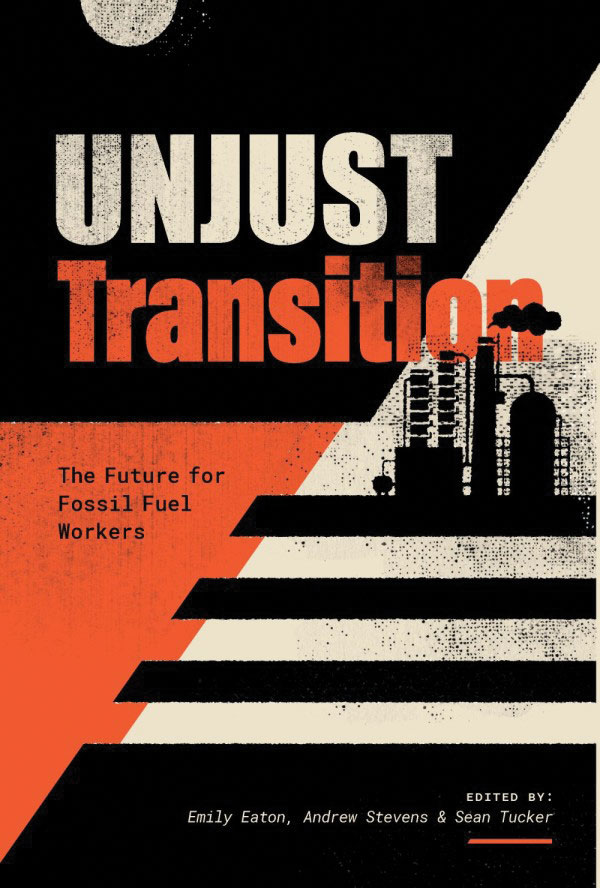The Canadian fossil fuel sector is failing. Not, as western premiers claim, because federal Liberals are desperate to curtail provincial revenues and powers, or radical environmentalists refuse to accept the harsh realities of modern-day extractive capitalism, but because the increasingly devastating consequences of human-caused climate change require the urgent shift to a low-carbon economy and the global system is already in transition. The question is no longer whether oil and gas extraction ends, but rather when? And how? Who benefits? Who suffers?
“So far,” co-editors Eaton, Stevens and Tucker explain in Unjust Transition, “the history of resource-based transitions [such as logging and fishing] in Canada has been deeply unjust, with the working class shouldering the burden of an industry’s unravelling without interventions.” The December 2019 to June 2020 lockout of Unifor Local 594 at Regina’s Co-Op Refinery Complex (CRC), they suggest, “serves as a cautionary tale… [a] bellwether event for fossil fuel workers in an industry being forced to respond to the deepening climate emergency.” As the sector falters, they ask, will employees be “passive and reactive, accepting the industry’s layoffs and decreased benefits…? Or [will they] fight for a just transition alongside allies in other sectors and strategically engage with environmental movements?”
The first step, according to the editors, is for workers to understand that their goals and objectives diverge from their employers’—and from the fossil fuel sector more broadly. For decades, as Patricia Elliott’s chapter details, the refinery convinced politicians, employees and the public that their futures were intimately intertwined, that any efforts to reduce the plant’s carbon footprint (or any regulations, for that matter) would require painful sacrifice from the labour force, not, of course, company revenues. Thus, as chronicled in the book, though workers face short and dangerous careers, the CRC justified pension cutbacks—ultimately meant to break union solidarity—based on new federal climate requirements. The labour dispute exposed the ways that workers’ interests—good jobs, decent pay, benefits and health and safety—do not align with employers who want to delay action and grow profits for as long as possible.
However, as chapters by Smith and Wanlin and by Nesbitt and Leedham document, the labour dispute also exposes important institutional barriers to collective action. The legal system, explain the former two, prioritizes private property over the right to picket and, say the latter two, the lack of dedicated journalists in the mainstream media leaves complex issues uncontextualized and company claims and accusations unquestioned. “The absence of a labour beat in Canada’s mainstream media,” they state, “has allowed large employers… and allied right-wing political organizations to turn reality on its head in pursuit of a traditional corporate agenda of union busting and retaining power and prerogative over economic and political affairs.” To effectively negotiate for protections, then, unions must continue to fight for bargaining rights and a free and critical press.
Though the first seven chapters could connect more explicitly to the just transition strategy proposed in the final two essays, this collection nevertheless offers a clear message: the shift to a low-carbon economy is already underway, and if fossil fuel workers are to survive, unions must educate their members, build solidarity and external alliances and exert their powers to demand government and employer supports. Otherwise, “workers in the country’s oil and gas sector” are bound to discover “what has been experienced in other resource industries, like logging and fisheries.”
Roberta Lexier is an associate professor in the departments of general education and humanities at Mount Royal University.
_______________________________________


